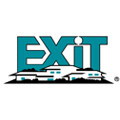By Tami Bonnell, Co-Chair, EXIT Realty Corp. International
I’m frequently asked to project ahead to the year 2030 and offer my opinion about the real estate landscape at that future date. Barring another 9/11, pandemic or recession, here’s a glimpse inside my crystal ball.
A lot of the disruptors entered the industry during the upward market swing after the worst recession since the depression because they saw that real estate and related industries contributed a fifth of the value to the GDP in the United States. While they saw an opportunity to make money, they didn’t enter the market with consideration to much other than technology and they (and their leadership) don’t have real estate experience. So, when I project ahead, some disruptors won’t be here in 2030, because at some point in time, those businesses will have to turn a profit.
Among those that remain, there is a very big difference between the brands that will simply survive and those that will thrive. I believe those that will thrive will offer the opportunity for agents to have some form of vested interest. It doesn’t have to be residual income like EXIT, although that makes sense, but agents will need to feel like they’re truly part of something. They want to be tied to a cause and they want to add value.
Starting next year, the youngest baby boomers will be turning 60 years old, so in 2030, they will be 67, and that means a lot of the population is aging out. So, how can the next generation succeed? For the first time in years, millennials bought more than 50% of properties over this past calendar year flexing their muscle in the real estate market. Because many of them bought in a panic, often sight unseen, and often waiving home inspections, we’re seeing incredible buyer’s remorse from first time homebuyers because they didn’t get enough information. So that tells me, moving forward we’re going to need well-educated professionals. Savvy professionals now and in 2030 will have to leverage skill set with technology and offer the speed and transparency that the consumer wants and expects. Skill set and personalization will out trump high tech alone.
As we march towards 2030, there will be a need for the industry, brands, and agents alike to participate more in being the solution to the increasing challenges posed by housing affordability and climate change, among others. As housing professionals, we will need to create or discover options and opportunities. For example, we’re already seeing properties that aren’t being insured in California because of the fires, and if you don’t have insurance, you can’t have a mortgage. It will become more important than ever for real estate professionals to funnel their expertise through highly personalized service to their clients’ unique and special needs.
We’re hearing an awful lot about a Metaverse, but have you ever had a conversation on Facebook or with an avatar that was as meaningful as a conversation you had face-to-face with someone? While well-built tech can make you more effective and provide great reach, the experienced professional behind that tech is equally if not more important. I think companies are pushing for high tech because there is a lot of money to be made, but I am optimistic that humans are going to win, and that the people and companies who put people first will be the ones who thrive in the next decade and beyond.


